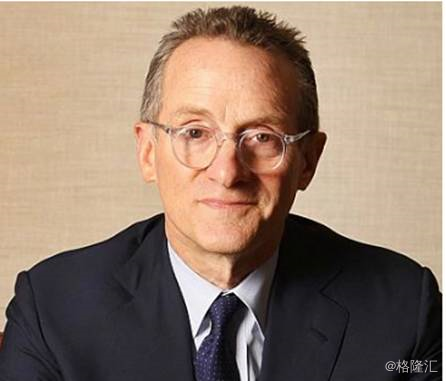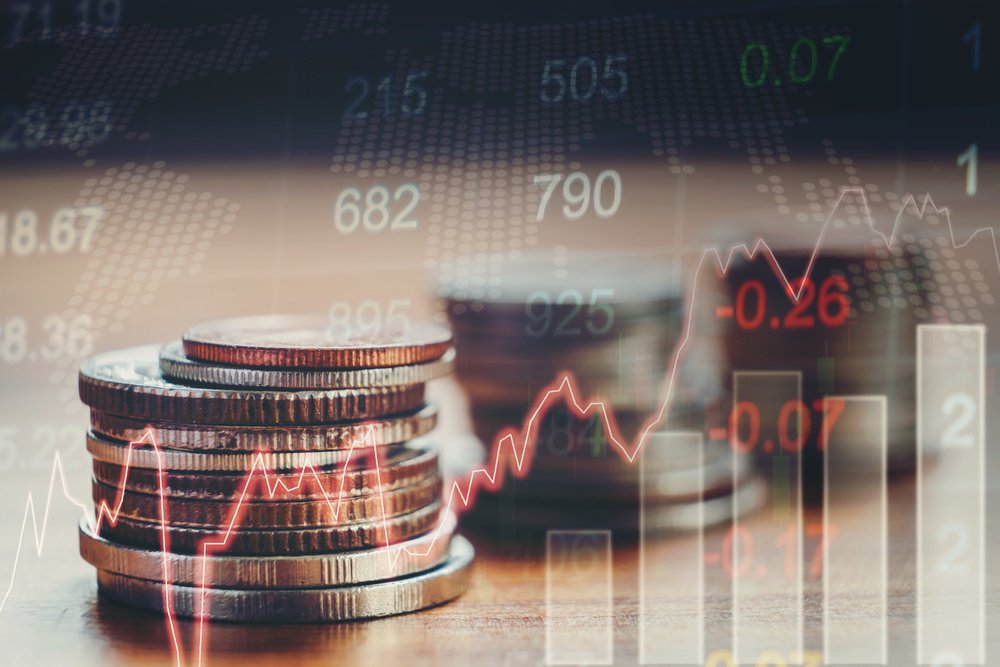编者按:2017年伊始,霍华德马克斯在其橡树资本官网上发出了最新一期“备忘录“,在备忘录中投资大师霍华德对诸如2016年美国,英国公投,意大利公投等黑天鹅事件进行了探讨,对众人口中的”专家意见“提出了深刻看法,以此提醒投资者们要脱离所谓”专家意见“的束缚。
橡树资本总部位于美国洛杉矶,旗下管理资产约800亿美金。马克斯先生拥有沃顿商学院的金融学学士学位,以及芝加哥大学会计与市场营销学的工商管理硕士学位。格隆汇特组织翻译力量以中英对照形式将此文分享与格隆汇会员。
Latest memo from Howard Marks: Expert Opinion
霍华德马克斯最新备忘录:专家意见
And the Media?
媒体又如何呢?
When I was young, a limited number of media outlets were the public’s primary source of information. There were three TV networks and four local stations – no more room on the dial – and until 1987 they were subject to the FCC’s Fairness Doctrine that required broadcasters to discuss controversial matters of public interest and air contrasting views. Edward R. Murrow, a TV news anchor, was one of America’s most respected men, and I often make reference to the time he said, “Anyone who isn’t confused doesn’t really understand the situation.” Walter Cronkite, Chet Huntley and David Brinkley were similarly trusted. Newspapers may have had Democratic or Republican leanings, but outside the editorial pages they largely avoided partisanship in covering events.
我年轻的那会儿,能接触到的提供主流信息的公共媒体非常有限。 只有三家电视台和四个本地的电视台,没有更多了。1987年,美国联邦通讯委员会颁布了公平经营原则。这个原则要求媒体必须给为了公众利益展开辩论的双方都提供播出的机会。一位非常受尊敬的新闻人,爱德华·R·穆罗,在当时有一句名言,如今我经常参考:“如果你说你不懵逼,只能说明你根本就搞不清状况。”沃尔特·克隆基特、切特·汉利和大卫·布林克利都有同样的看法。 报纸有支持民主党的也有支持共和党的,但在无关公众利益的事件中,他们都在极力避免自己的党派性。
The subsequent proliferation of cable TV networks set off powerful competition for viewers. A few chose to be full-time purveyors of news, along with some talk-radio stations. Rush Limbaugh, Roger Ailes and Rupert Murdoch realized that a big following – and big money – could result from highly partisan, even inflammatory, broadcasting. Radio “shock jocks” like Don Imus and Howard Stern chipped away at standards for language and demeanor, and news and talk shows emulated them. So now we have outspoken, boisterous speech, along with highly partisan messaging.
这个公平经营原则的出台引发了各家媒体的激烈竞争。有一些谈话电台就专门全天候的搞新闻。拉什·林鲍夫(著名政治评论家)、罗杰·埃尔斯(FOX前董事长)和默多克发现这有可能导致极具煽动性的党派言论播出。像唐·埃姆斯和霍华德·斯特恩这样的被冲昏脑袋的广播人,都不怎么考虑自身言论的节操性和道德水准了,新闻和脱口秀也开始仿效他们,到处都充斥着各种毫不遮掩的党派属性十足的言论。
These days the news media shows little resemblance to what it was 30, 40 or 50 years ago. Many outlets are highly biased to one side or the other and make it possible to read, watch and listen all day and never be exposed to all aspects of the issues. Thus most people find something to complain about in the media coverage of the 2016 presidential election.
现在的媒体又开始有一点点要走老路的迹象了,就像30、40或者50年前一样。很多节目呈现出来的就明显偏向一边或者另一边,大家一天到晚的阅读、收看、收听这些片面的东西,根本完全就考虑不到事情的全面性。于是大多数人都在抱怨这场总统大选。
Today’s media personalities rarely express the confusion Murrow did. Rather, they tend to state forecasts as certainties. When do you hear a TV commentator say “I think” or “it seems to me”?
如今,媒体的属性已经决定他们几乎无法提出像穆罗当年那样的思考了。他们更愿意把预测性消息当做确定的东西播出去。你啥时候听见电视评论员说过“我想”或者“我认为”之类的?
In fact, they often remind me of the description of economists I heard in the 1970s: “portfolio managers who never mark to market.” That is, they find it easy to overlook the times when they’re wrong. In August or September of 2015, when Donald Trump was beginning to achieve success in his pursuit of the Republican nomination, a New York Times columnist flatly stated that because Trump couldn’t stand the prospect of losing, he would drop out of the race before the primaries began in January. We didn’t see that happen . . . or any further mention of his assertion.
这经常让我想起我在70年代听到了一个经济学家的说法,“基金经理永远不考虑市场。”是的,他们特别容易就对自己的错误视而不见。2015年8、9月份的时候吧,当川普开始角逐共和党内的总统候选人提名时,一个纽约时报的评论员淡定的说过,川普受不了失败,他会在一月份的时候就退出初轮竞选。结果啥事儿也没发生,他也没再说过啥。
What to Do About the Media
媒体该怎么做
Given the nature of the candidates for the presidency, the starkness of the choice, and the recent trends in media coverage, I spent a great deal of time last year following political developments via websites, newspapers and television coverage. Most people I know did, and you may have as well. For many it became a preoccupation, even a mania.
为了想要更好的勾勒出总统候选人的形象,我在网络、报纸和电视媒体花了很多的时间。这可以跟上现在的政治发展,也可以了解媒体行业的动态。我认识的大多数人都是这么做的,你可能也是这样。然而对有些人来说,他们走向了偏见,甚至几近疯狂。
My son Andrew has helped me dope out the media effects:
我的儿子安德鲁帮我思考了媒体的几个影响:
• Following events makes people feel they’re actively involved in them and well informed.
关注一些事件让人觉得自己实际参与其中,自我感觉良好,俨然成为消息灵通人士。
• People think and act with more confidence when they consider themselves informed.
如果人们自认为是消息灵通人士,他们会更大胆自信的去思考并且行动。
• But the media pundits often are no more insightful than the rest of us.
然而,现在有的媒体空谈家甚至比我们更加没有见识。
• And anyway, people tend to follow media outlets that confirm their beliefs rather than challenge them.
不过,人们还是更趋向于相信媒体的报道而不是去质疑虚实。
• Thus following the media experts, while entertaining, can be a waste of time intellectually.
所以搞笑的是,跟着媒体的专家人云亦云,其实真的很浪费时间。
For these reasons, I greatly enjoyed an article that appeared in the Observer on November 16, a week after the election. It was entitled “Want to Really Make America Great Again? Stop Reading the News.” Ryan Holiday, its author, talked about what it’s like to be caught up in the news cycle.
综上,我真的很享受11月16日在观察家报看出的一篇文章,大概是在大选的一周后。这篇文章的标题是:“真的想让美国复兴?别看新闻了”,作者瑞安·霍利戴谈了谈媒体圈到底是如何运作生存的。
For a number of reasons, there has arisen in the media:
出于一些原因,
. . . a system that needs more and more eyeballs for longer periods of time while gutting high-quality, reliable sources of information. We have more “news” but less original reporting than ever before, an order of magnitude more in the way of opinion and analysis, but as [author and academic] Tom Nichols has pointed out, somehow less expertise.
媒体需要用高质量及可靠来源的消息,来博取众人眼球,获得长时间关注。较以前相比,我们现在的许多新闻没有原始出处,大量的观点和分析都比较缺乏专业。就像汤姆·尼古拉斯(学者、作家)指出的一样。
Chuck Klosterman [a writer on American culture] once remarked at how strange it was to walk through the front offices of a football team and find that everyone there was watching ESPN. Didn’t they have better information than the average viewer or reporter? Turns out, no – they’re addicted to the same media we are and subject to the same groupthink. . . .
查克·克洛斯特曼(美国文化作家)曾经感叹过,有一次他穿过某足球俱乐部的办公室,发现里面所有的工作人员都在看ESPN,这让他有点儿摸不着头脑。难道这些工作人员不比记者们更加的了解体育信息么?其实并不是,他们只是喜好媒体的报道,而且被集体思维所支配。
Twitter isn’t designed to help you get in and out with the best information as quickly as possible – it’s supposed to suck you into either a contentious world of argument and debate or an echo chamber that reassures you everyone thinks like you do. . . .
推特很显然并没有让你第一时间得到更多的信息,它更像是一个强迫别人认同自己、一言不合就开撕、互相争吵开骂的地方。
We’re “participating” in the ecosystem because it’s addicting and because we’re curious.
我们就在这个生态圈里面,因为我们好奇并且被吸引。
So author Holiday came up with a useful prescription in response:
所以,霍利戴为此开出了药方:
It’s not that I am going underground or completely disconnecting from current events. It’s that I have decided I am no longer going to watch them develop in real time. I’m going to watch the Saints play every Sunday, [but] I’m not going to fool myself into thinking that tuning into “Sports Center” on Tuesday will help.
我们要以长远和发展的的目光看待问题,当然这不是说,我们要去跟这个世界割裂。我们要去现场看一场球,而不是每个星期二打开电视看个体育新闻,这并没有什么卵用。
A lot of people’s lives would be more tranquil and more productive if they accepted that what the media says about an upcoming event – and whether you watch or not – won’t have any impact on the outcome.
如果你接受媒体所说的关于未来的评论,生活会很轻松也会更高产,这省去了思考的时间。但是其实,这些评论对未来根本不起任何作用。
What Do the Experts Know?
专家到底知道些啥?
One of the reasons I crafted this memo this way is so I would have a chance to return to a subject I introduced in 2015: the New York Post’s “NFL Bettor’s Guide.” Each week during football season, the Post’s eleven experts advise its readers as to which teams to bet on. Here’s how the experts did over the full 17-week season, covering 256 games:
我要如此写这个备忘录的另一个原因是,我有机会来说一下2015年我提过一个东西:纽约邮报的“美国职业橄榄球彩经”。每赛季的比赛周,邮报的十一位专家们都会给读者推荐一下该给哪个球队下注,下面是这些专家们在过去17周的表现,包括了256场比赛:
• The best picker was right 55.1% of the time.
最厉害的一个专家的正确率达到了55.1%
• The worst picker was right 48.8% of the time.
最差的一个的正确率在48.8%
• On average the pickers were right 51.6% of the time.
专家们的平均正确率在51.6%
The experts further help readers by specifying up to three “best bets” each week. Here’s how they did on their strongest picks:
专家们每周还会进一步的推荐三个“最佳投注”,然后我们来看看结果:
• The best picker was right 62.7% of the time.
最厉害的一个的正确率达到了62.7%
• The worst picker was right 43.1% of the time.
最差的正确率是43.1%
• On average the pickers were right 54.0% of the time.
平均正确率是54.0%
The available observations from this data are as follows:
从这些数据中你可以得到一些比较可靠的结论:
• The way the overall results are distributed around 50/50 suggests the experts’ process is little more than a coin toss.
就跟抛硬币一样,专家们的意见也差不多就是50/50的样子。
• On average the experts were right just 2.4% more often on their “best bets” than on all their picks.
他们所谓“最佳投注”也就比平常的那些高出了2.4%左右。
• Two of the experts did worse on their “best bets” than on their other picks.
有两个专家的“最佳投注”比他们的平常预测还要糟糕。
• Eight of the eleven pickers were right more than half the time. But since it costs about 5% per week on average to bet with the bookies, virtually none of the eleven experts’ overall picks added value after fees (sound familiar?). Even the average of the experts’ “best bets” wouldn’t have produced a positive return after fees.
11位专家里面有8位正确率超过了一半,但是一般来说,一旦赌徒们的花费超过5%,没有一位专家的选择是带来了额外收益的,就算是“最佳投注”也没有带来任何积极的效果。
Two additional observations:
另外值得注意的两点:
• In week 16, all eleven of the experts predicted the favored New York Giants would beat the Philadelphia Eagles, and five of the eleven thought the underdog New York Jets would beat the New England Patriots (in both cases, after adjusting the scores for the “point spread” that the bookies impose to equalize the two teams’ chances of winning). When the games were played, the favored Giants lost by five points (meaning they did even worse after the 2½-point spread was subtracted from their score), and the Jets (who were expected to lose by 16½ points) lost by 38 instead. In other words, (a) the experts may have been heavily biased in favor of the New York teams and (b) they were wrong 73% of the time on these two games。
在第16周,所有的11位专家看好纽约巨人会战胜费城老鹰队,5位专家认为纽约喷气机会战胜新英格兰爱国者对。(从两方面来看,根据赛前赔率,投注者会发现,其实两个队赢得比赛的机会都差不多。)比赛结束后,纽约巨人输了五分。(他们在被让了两分半的情况下,都没能赢得比赛。)喷气机对输掉了38分(赔率显示他们会输16.5分)。换句话讲,1、专家们比较偏好纽约的球队,2、专家们在这两场比赛的错误率达到了73%。
• Bettors also have the option to bet on the “over/under” in a game – that is, whether the two teams’ combined score will exceed or fall short of a threshold set by the bookies. It’s just another way for bettors to get “action.” The results show the experts were right in 128 games (52% of the time) and wrong in 123 (there were five ties). Again no value added, especially after fees.
投注者还有一个玩法,就是“大小球”。意思是投注者要就两个队相加起来的比分是否超过或低于某个数值而进行投注。这只是让投注者觉得好玩的另一种玩法。最后结果显示专家们对了128场(正确率52%),错了123场(只差了5场)。这还是没有意义,特别是在已经下注之后。
If economists won’t publish their performance data, the Post at least performs a service by showing how its football experts did. The bottom line is that their opinions are of little help, and the related coverage omits all discussion of their lack of predictive value.
如果经济学家不愿意公开自己的预测表现数据,那么媒体至少应该协助展示专家的表现成果。最关键的一点是专家的意见其实并没有什么帮助,相关的报道也会忽略所有关于专家意见缺乏预测价值的讨论。
(完)
 下载格隆汇APP
下载格隆汇APP
 下载诊股宝App
下载诊股宝App
 下载汇路演APP
下载汇路演APP

 社区
社区
 会员
会员




